What it's like when a mass shooter kills your husband
‘I look for John’s bright blue shirt in the footage of evacuees. I call his office phone. I call his cellphone. There is no answer.’ Andrea Chamblee describes how she kept going after her husband was killed in the Capital Gazette shooting
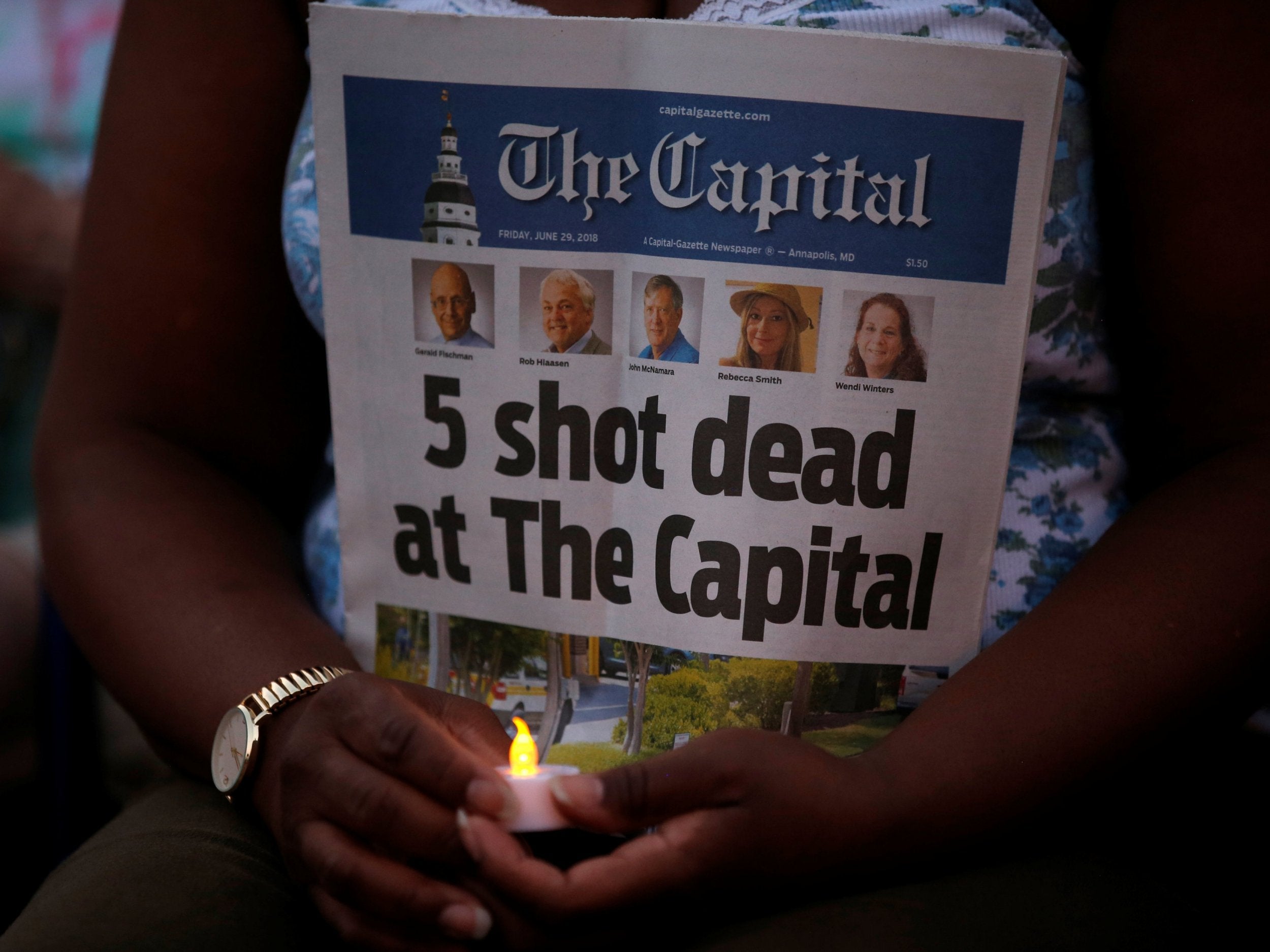
Your support helps us to tell the story
From reproductive rights to climate change to Big Tech, The Independent is on the ground when the story is developing. Whether it's investigating the financials of Elon Musk's pro-Trump PAC or producing our latest documentary, 'The A Word', which shines a light on the American women fighting for reproductive rights, we know how important it is to parse out the facts from the messaging.
At such a critical moment in US history, we need reporters on the ground. Your donation allows us to keep sending journalists to speak to both sides of the story.
The Independent is trusted by Americans across the entire political spectrum. And unlike many other quality news outlets, we choose not to lock Americans out of our reporting and analysis with paywalls. We believe quality journalism should be available to everyone, paid for by those who can afford it.
Your support makes all the difference.The text messages that begin arriving on 28 June end my ordinary life. “Where does your husband work?” “What’s happening in Annapolis?” “Have you seen the news?” My husband, John McNamara, is a reporter for the Capital Gazette. I am at my office, a government agency just outside Washington DC.
I google. Then I close my laptop and run towards the parking lot.
I pass one of the new TVs mounted on the walls, where a CNN news crawl says “SHOOTING AT ANNAPOLIS CAPITAL”. I sit down, perhaps on the floor. I look for John’s bright blue shirt in the footage of evacuees. I call his office phone. I call his cellphone. There is no answer.
I know there are times he forgets his phone. I recall each of those times to myself. Then I repeat them to other federal workers passing by.
I call again.
I fight the urge to call again.
I hear about a tweet that says someone is dead. I can’t find it online. I message the alleged tweeter. I receive no reply.
I answer a call from the New York Daily News. The reporter wants to know if I have a statement. “About what? What do you know?” I ask. There is an awkward silence.
I answer a call from the New York Post. “What do you know?” I ask. There is an awkward silence.
I answer a call from Good Morning America. “What do you know?” I ask again. Again, an awkward silence.
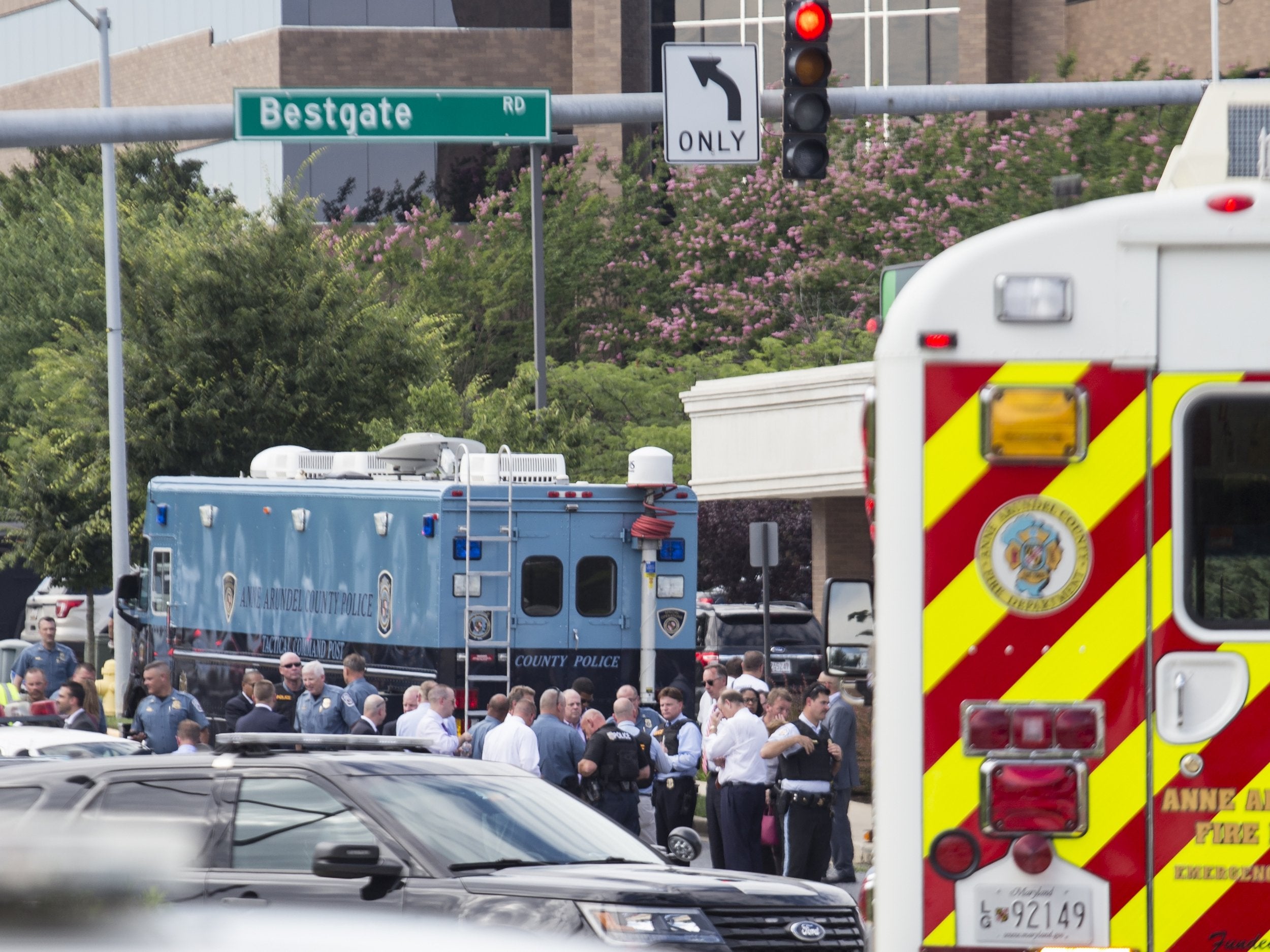
A new text shares a family information hotline number set up by some unknown organisation of crisis responders. I call. There is no information available from the information hotline. The woman takes my number and promises to call. She invites me to the “family waiting area” at a Lord and Taylor store near the newsroom. A friend already in Annapolis goes there and tells me there is no information, no water and no bathrooms in the pen-like area where families are corralled. I prepare to go to my mom’s home in Columbia, Maryland, instead.
I answer a call from the Wall Street Journal. The reporter says John might be “among the injured”. I pack a bag with John’s New Yorker and Sports Illustrated magazines, mindlessly grab random articles of our clothing, and ready myself to go to area hospitals. I might make it before the gathering crowds block the doors. But first I call hospital staff at Anne Arundel Medical Centre, then at the University of Maryland trauma centre. Both tell me he is not there.
More texts ask if I have seen the interviews with people who were telling Anderson Cooper the names of the dead. This clip is not on the CNN website.
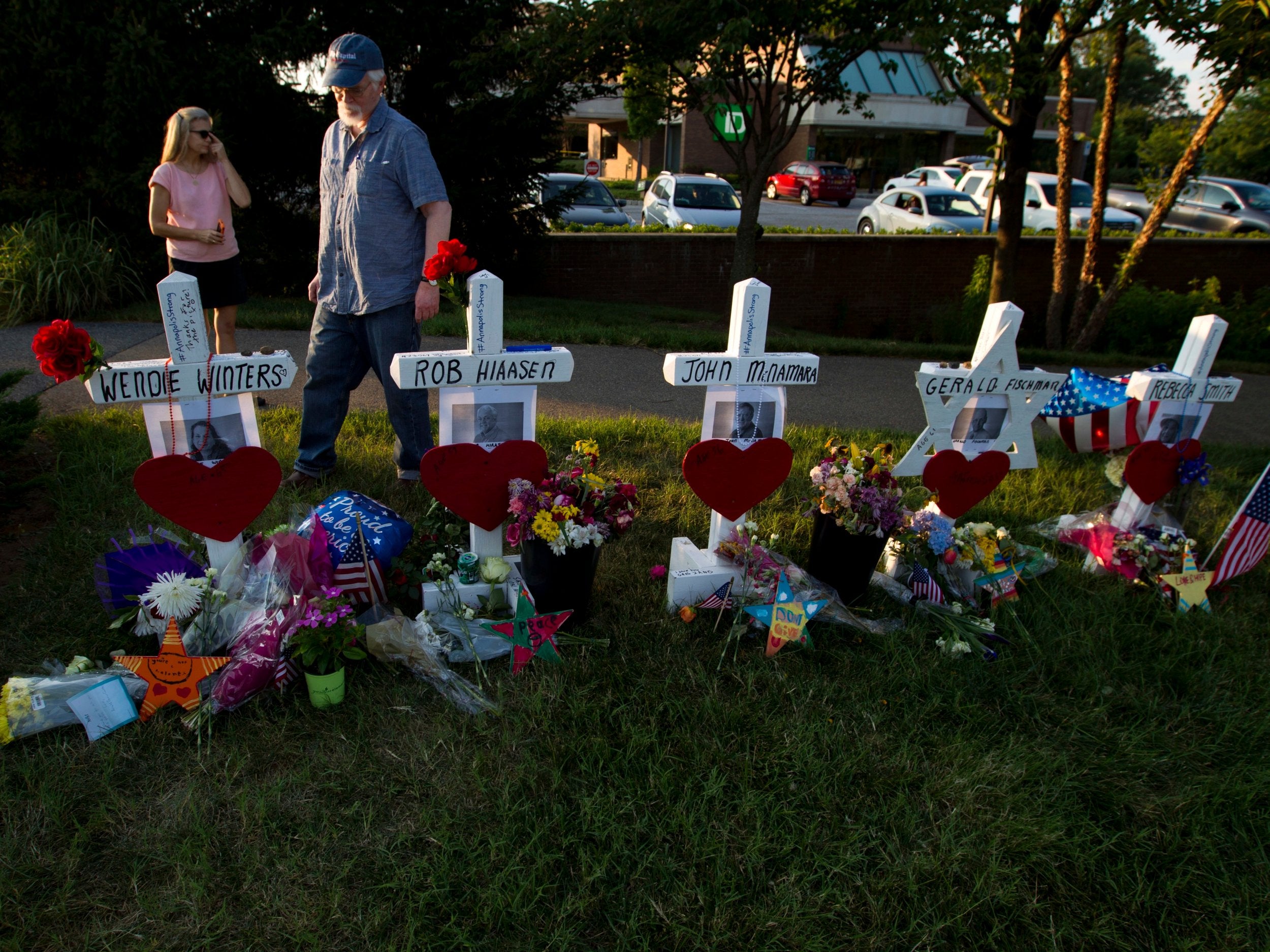
I call the family information hotline. A new voice says no information is available. He takes my number and promises to call.
After seven hours of waiting, I answer another strange number. Several of John’s coworkers can be heard on the line. There is wailing: painful, wounded wailing. One voice chokes out the words: “He’s dead.” The wailing gets louder. It is my wailing.
After 10pm, when I’m still at my mom’s, the crisis centre representatives arrive at my front door and talk through my video doorbell. The information hotline has finally released the information I’d already learned. I know, I say. John worked at a newspaper, after all. There is Twitter, after all. There are cellphones. The man and woman on the other side of the doorbell video say the company couldn’t find my phone number. I tell them 14 news organisations desperate for a “widow quote” were able to find my number.
I get 90 minutes of sleep that night. I cancel work the next day. I cancel my evening work event. I forget to cancel my lunch meeting.
I try to turn down a job transfer that was supposed to take place in July; I can’t possibly start now. They say they understand. I decline an offer to teach a graduate course in the summer semester. They say they understand. I cancel my volunteer work at a local theatre. They say they understand.
I cancel my theatre tickets. They say they understand and refund my money, even though I had declined the ticket cancellation insurance. I cancel our Bethany Beach vacation. Wyndham says they understand and refund my money, even though I had declined the booking cancellation insurance. I cancel a later trip to an out-of-town wedding. Southwest says they understand and refund my money, even though I had declined the airline cancellation insurance.
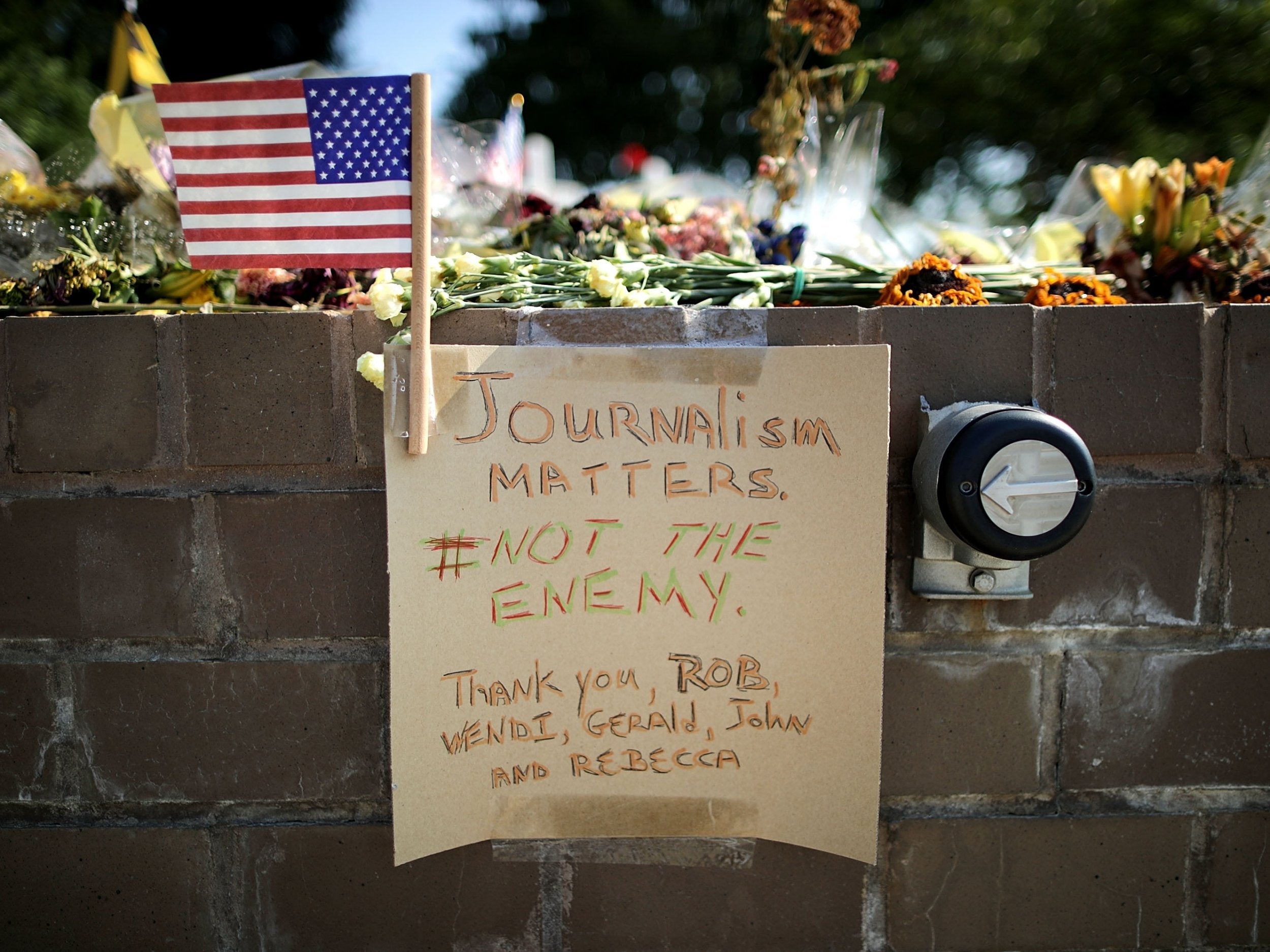
I can’t cancel the home repairs, so for the next two days, the old roof comes down and the new roof goes up.
There are more nights of one, two or three hours of sleep. My vacation is replaced with meetings: the crisis centre, the grief counsellors, the life insurance company. The financial adviser helping me save for my retirement tells me not to sign the papers that arrive in the mail.
The medical examiner’s office takes five days to release the body. I identify John and say my goodbyes. He is recognisable, even though the refrigeration has turned his nose black. I am permitted to see his face but not his body through the cocoon of the ice pack; I am not able to take his hand. They don’t tell me where the bullet entered or even how he died.
The city of Annapolis organises a memorial march on 29 June. A march the next day in town to support immigrants’ rights would spontaneously turn into a joint march against gun violence. The Washington Post runs a front-page photo of a marching, weeping widow. It is me. Tonight, two hours of sleep.
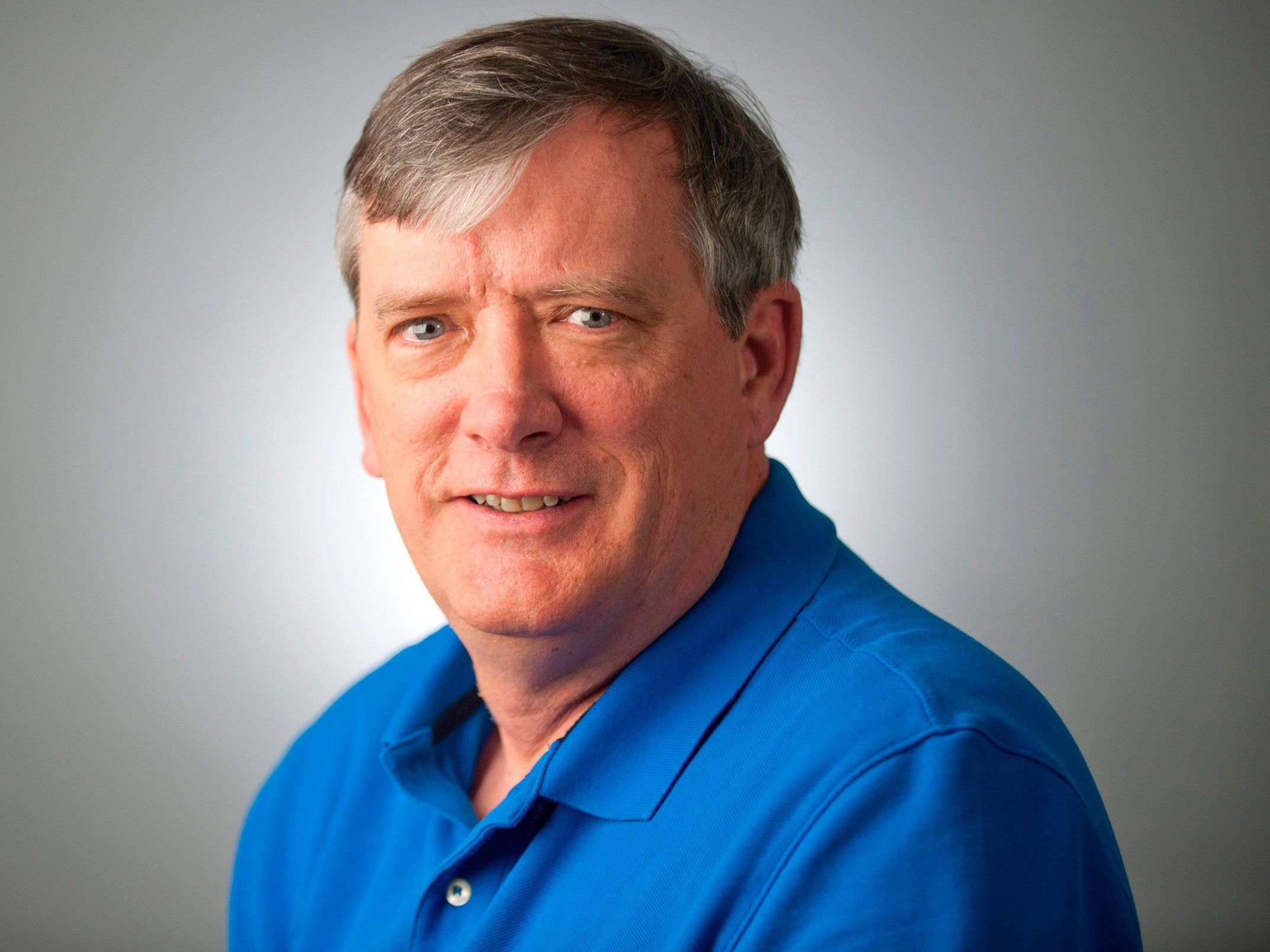
I wake up and find flowers, plentiful and fragrant like a funeral home lobby, waiting on the welcome mat. Business cards from Fox and Sinclair News reporters are stuck to my front door. Worried neighbours have left thoughtful cards.
I begin planning the memorial: the programmes, the music, the pictures, the urn, the speakers, the properly shocked politicians who offer condolences, the officiant. Guests want time to buy their plane tickets from Detroit, from Denver, from Seattle, from LA, from Atlanta. I order death certificates and sleep for three hours that night.
There are tweets and texts: will I queue up this favourite song? Can I include this picture? May the journalists quote me? Can media come? Did I sign this contract? Have I called traffic control? Do mourners get parking passes? Where are the driving directions?
Friends and family pose well-meaning questions: did I pick up my prescription? Did I order food? Did I order enough food? Is there enough parking? Did I get some sleep? Tonight, two more hours of sleep.
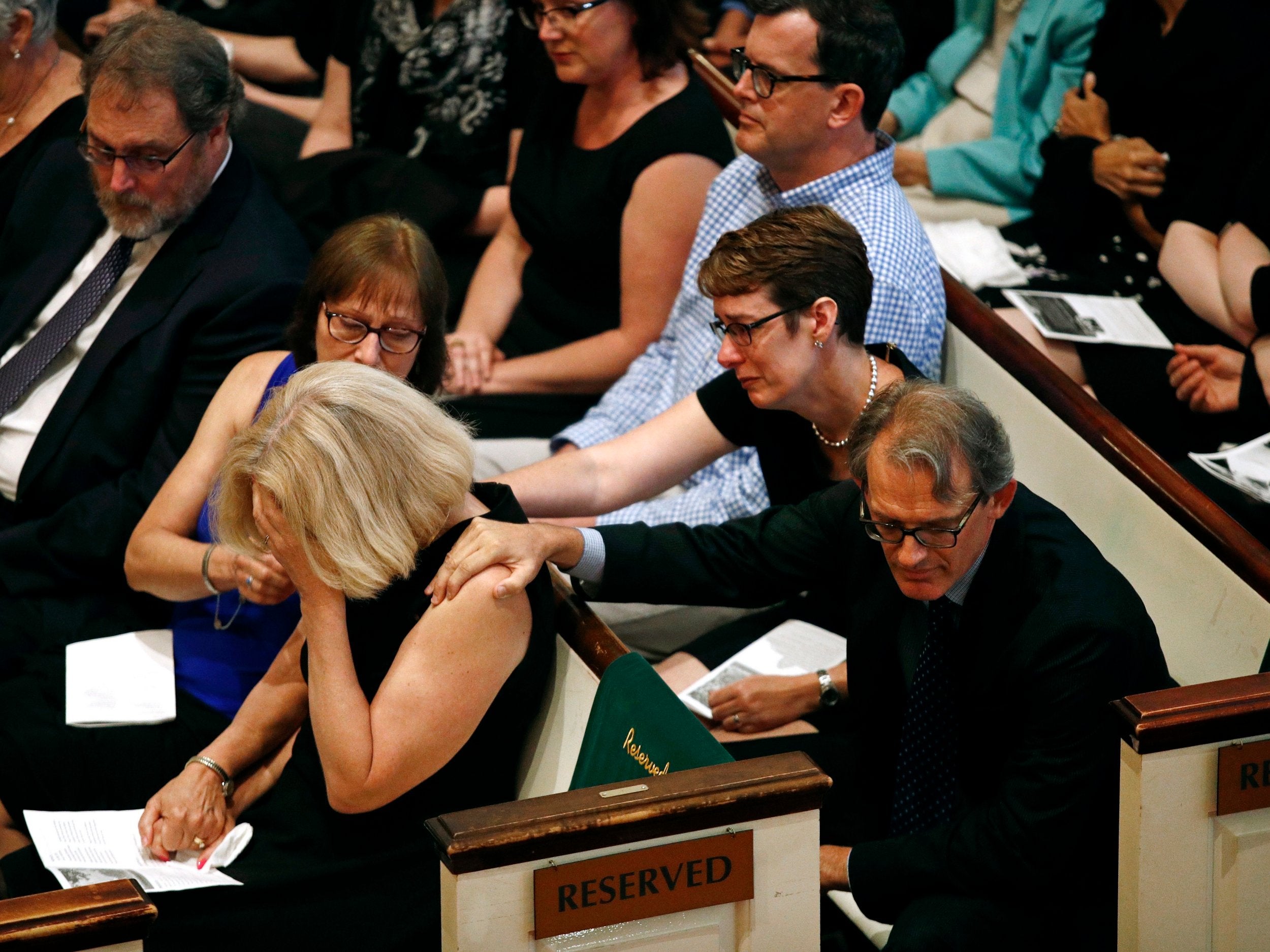
There is no cooking in my house. The fruit goes from the bowl on the table to the refrigerator, and eventually to the trash. There is no time or inclination to eat. Without breakfast, my knees buckle. I ask people to let me reach over them to grab the handrail at the Metro; at the funeral home; when I’m out for 4 July.
The refrigerator starts to stink. So do the dishes in the sink, and the trash holding the food I couldn’t eat. The laundry aroma wafts from the hamper upstairs, meeting the food odours in the middle of the house. Tonight: two hours of sleep.
I bring in more flowers. I forget to water the flowers. I assemble the gift of the bonsai with the rock garden, and I am annoyed at the assignment until I realise that at least it’s not more flowers.
I forget to water my plants. I forget to eat my vegetables. I forget to charge my phone. I forget how many days in a row I wore these pants. I forget to check messages on the landline. I walk upstairs and forget why, so I walk back downstairs. I do it again.
I use my own Chapstick. I make my own coffee. I pick up his car. I finally sleep, but the phone rings at 8am. I realise my underwear top doesn’t match my underwear bottom. I realise it doesn’t matter. I notice my own cheerful, vacation-themed out-of-office message. I change it and update my timesheet with sick leave.
I have lost weight: I try on my black dress. It is too big. I try on my tight black dress. It is too big. I need to buy something new, and when the cashier asks what the new black dress is for, I cry. She abruptly gives me the employee discount. The hairstylist refuses to let me pay for the haircut. The manicurist looks at my chewed nails and peeled polish and says she will fix it so I can get another husband.
The survivors contact me and tell me he didn’t suffer. But, they warn, never watch the security video.
Andrea Chamblee is the widow of Annapolis Capital Gazette sportswriter John McNamara
© The Washington Post
Join our commenting forum
Join thought-provoking conversations, follow other Independent readers and see their replies
Comments